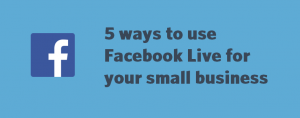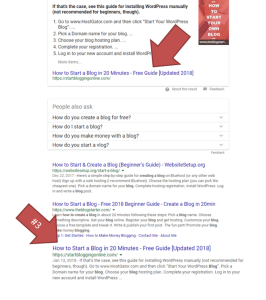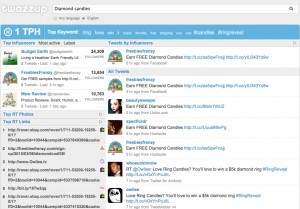Stereotypes limit real market understanding and the benefits of a nuanced approach. Here’s what to do instead.

We’ve all seen it: marketing articles, research reports and social media posts that try to capture generations as if they were a single, predictable group. But in reality, these generational labels often oversimplify and stereotype, missing the complex mix of influences that shape people’s behaviors, values and choices. Here’s why it’s time to move beyond labels and how to adopt a more nuanced approach to understanding today’s diverse market.
The problem with generational labels
We’re all familiar with the language of generations:
- Gen Alpha.
- Gen Z.
- Millennials.
- Boomers.
- And the often-forgotten Gen X.
“Familiar” might even be an understatement — references to generations, especially the coveted Gen Z, appear in nearly every marketing article. As a researcher, I’m often asked for my thoughts on Gen Z and why “they are that way.”
My answer, though, usually disappoints. For decades, we have been inundated with opinion passing as research on generational differences, and it is only getting messier. However, few people who use these terms have a deep, nuanced understanding of what they mean. Contrary to many people’s claims, there is little or no supporting evidence for the generational labels we typically use. Sadly, referencing a generation has just become a way to lazily stereotype a group.
Growing skepticism in the research community
It’s not just my opinion. In 2023, Pew Research Center addressed this issue directly, stating:
“…generational research has become a crowded arena. The field has been flooded with content that’s often sold as research but is more like clickbait or marketing mythology. There’s also been a growing chorus of criticism about generational research and generational labels in particular.”
— Kim Parker, “How Pew Research Center will report on generations moving forward”
This shift didn’t happen in isolation. Concerns about generational labels have been building up in academic circles for some time. This discontent culminated in an open letter signed by 180 academics urging Pew to move away from the use of generational labels.
Pew is not the only major research provider to rethink how they talk about generations. In their 2023 report, Ipsos states:
“Marketing is overrun with stereotypes, hot takes and clichés. Some of the most enduring in the first two decades of this century centered on the post-1980 millennials, who were proclaimed as a new generation that would completely disrupt business.”
— Ben Page, “We need to talk about generations — Understanding generations”
The millennial example: A case study in stereotyping
In 2016, author Simon Sinek gave an influential interview about millennials as they were entering the workplace. Many of you reading this are probably classified as millennials and might be surprised that he describes you as having lower self-esteem, being highly self-absorbed, narcissistic and entitled.
But here, Sinek was just repeating the party line for generational research at the time — that millennials would give businesses a big headache. Several things are being conflated. Was Sinek talking about millennials or just young people? And was his claim that they were addicted to social media truly a millennial trait or just a sign of the times?
People complaining about younger people’s access to media is nothing new. In 1790, the Reverend Enos Hitchcock wrote:
“The free access which many young people have to romances, novels and plays has poisoned the mind and corrupted the morals of many a promising youth…”
Why generational labels oversimplify: 3 key distinctions
When we lump a group of people into a generational label, we mix up three completely different things.
1. Life stage
Teenagers have done dumb things since the dawn of humanity, and middle-aged people have complained about them for just as long. People change when they get a job, have kids and retire. Young people are often at the forefront of social change. If we assume that these traits are permanent, then we would have to assume that all boomers are still hippies!
2. Era
There are differences in our world that all people experience, regardless of generation. We all have access to the same media landscape and experience the same political environment, which is different from that of 10 or 20 years ago. Social media addiction is real, but it is not confined to Gen Z (or millennials). Many of us have older relatives who are just as addicted to their Facebook.
3. Cohort
This is a fancy term for a group of similarly-aged individuals who have experienced the world in a similar way. This is the crux of generational differences. Still, it is (as Pew admits) very hard to untangle from the above two aspects. Cohorts depend on other factors such as wealth, urban or rural situation and family history.
To complicate things further, generational groups are highly diverse. In many ways, a young individual’s values are likely to be more closely aligned with their family’s than those of random (but similarly aged) individuals from a totally different background.
Practical guidelines for marketers
What does this mean for us? Here are a few thoughts to help you navigate all of this.
- Generational labels can be useful, but we must always remember that at best, they are a short-hand, at worst, a stereotype.
- Be careful to identify the difference between age-related traits and true cohort effects. Do not expect people’s values and behaviors to be set in stone by their generation.
- Explore the breadth of generations, not the soundbites. If 75% of Gen Z are using TikTok, what are the other 25% doing?
- Avoid any marketing actions that are based on one-dimensional interpretations of a generation. Nothing is more cringe-worthy to a Gen Zer than a company pretending it can “talk like Gen Z.” Don’t just find a hot phrase and repeat it in your marketing. Just look at Reddit ads that try to pretend to be “authentic.” (TL;DR, IYKYK!)
- Finally, do your own research. Don’t just focus on a mythical generation. Look into your customers as a whole. Identify how younger and older people relate to your brand and experience your products.
There are good ethical reasons for moving on from the tired stereotyping of generational labels — but there are also compelling marketing reasons to gain a more nuanced view of your market. Assuming that all your customers are the same, even those of a similar age, will never be a winning strategy.
The post Why generational stereotypes are failing marketers and how to move past labels appeared first on MarTech.
(3)
Report Post








